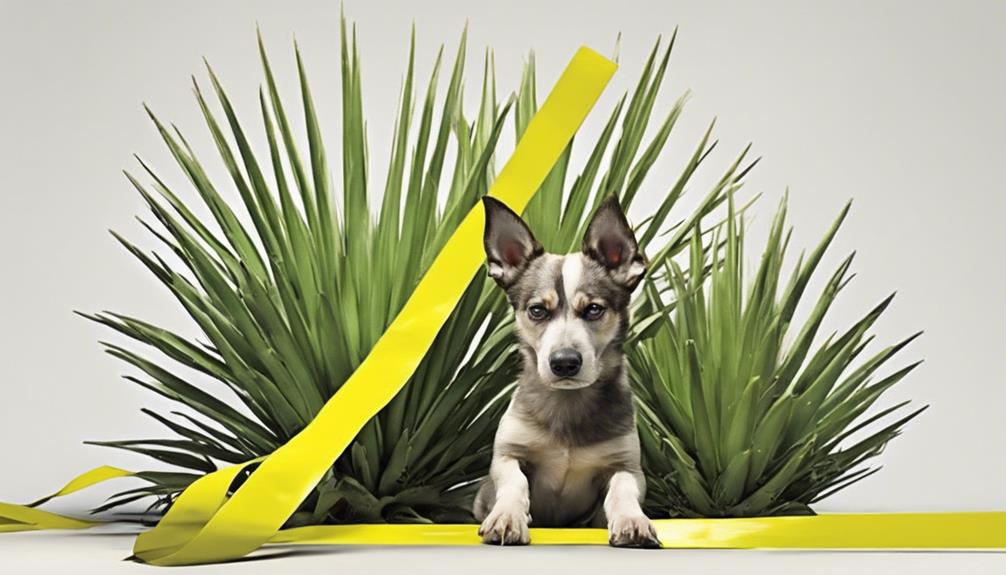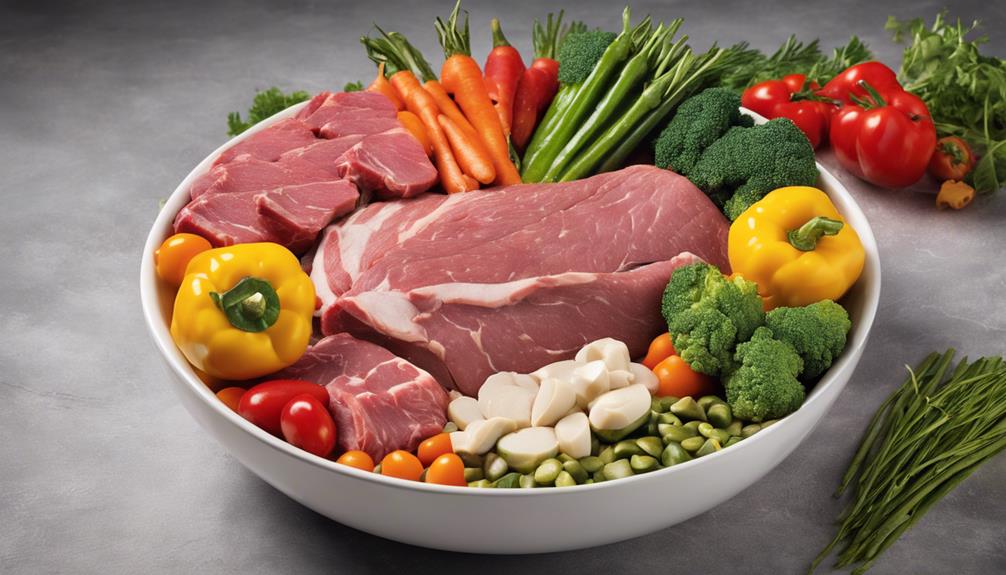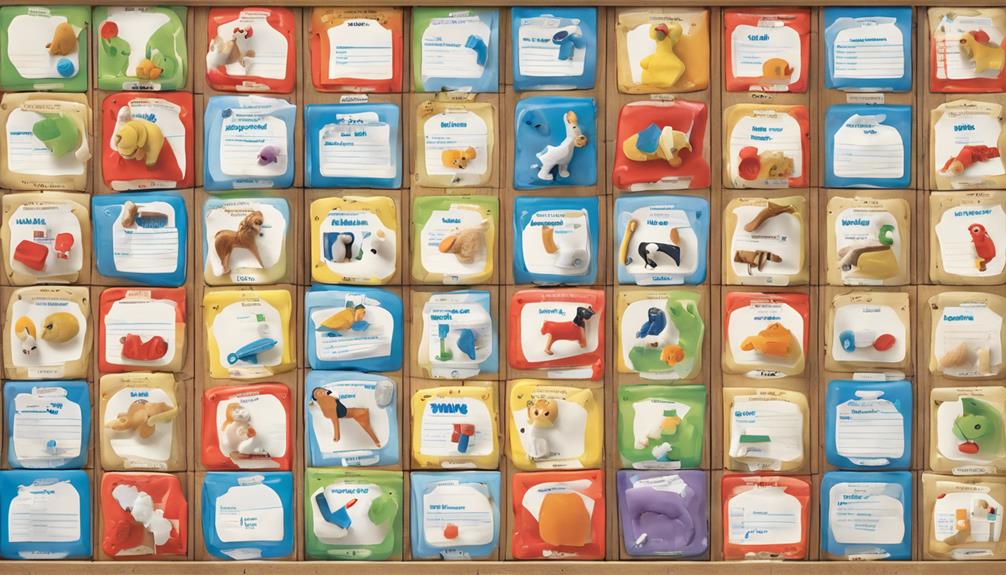Yucca plants, found in gardens, can harm dogs. Steroidal saponins in them are toxic. Symptoms, like vomiting and weakness, may affect dogs. Watch for signs of confusion or seizures in pets. Immediate vet assistance is crucial. Symptoms include drooling, weakness, and dilated pupils. Look for nausea and diarrhea too. Dogs might seem confused or weak. Seek early treatment for recovery. Proper diagnosis aids in treatment. It's important to act fast for recovery. Learn more about yucca dangers and how to keep pets safe.
Key Takeaways
- Yucca plants contain toxic steroidal saponins harmful to dogs.
- Symptoms of yucca poisoning in dogs include vomiting, diarrhea, weakness, and confusion.
- Prompt veterinary attention is crucial to prevent severe complications.
- Thorough physical examination and laboratory tests aid in diagnosis.
- Prevention involves removing yucca plants, securing surroundings, and training dogs to avoid them.
Yucca Plant Toxicity in Dogs
We must understand that yucca plant toxicity in dogs poses a serious risk to their health and well-being. Yucca plants contain steroidal saponins that are toxic to dogs, leading to gastrointestinal upset such as vomiting and diarrhea. This toxicity can be particularly severe in small or older dogs due to their vulnerability.
When a dog ingests yucca, it can result in a range of symptoms, including weakness, confusion, and even seizures. Prompt veterinary attention is vital in such cases to prevent serious complications from arising. It's essential to keep yucca plants out of reach of pets to safeguard their safety.
If you suspect that your dog has ingested yucca or is showing signs of poisoning, contact your veterinarian immediately. By being aware of the dangers yucca plants pose to dogs and taking preventive measures, we can help keep our furry friends safe and healthy.
Symptoms of Yucca Poisoning
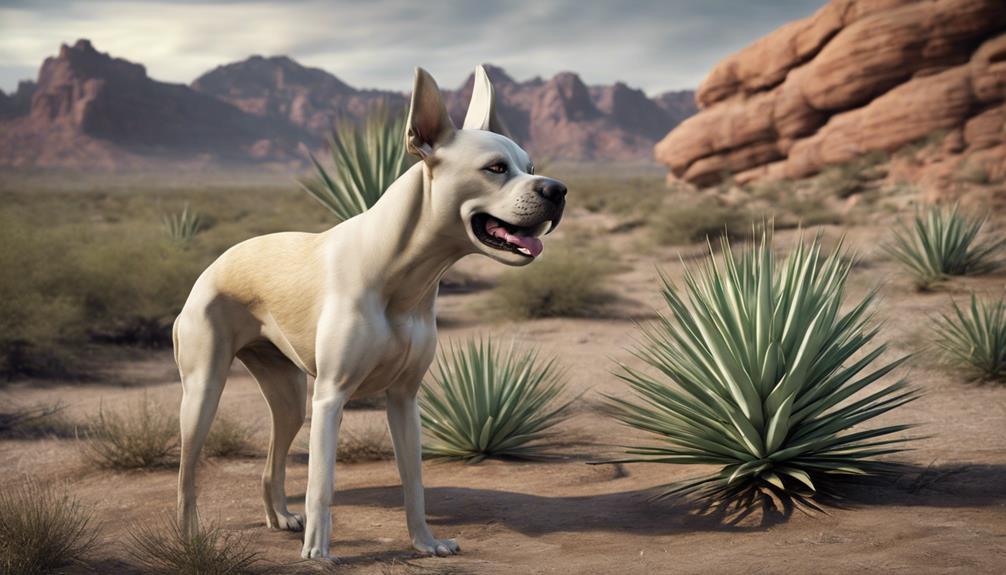
Symptoms of yucca poisoning in dogs manifest as drooling, vomiting, weakness, and dilated pupils. If your furry friend has ingested any part of the yucca plant, keep a close eye on them for signs of toxicity. Watch out for gastrointestinal upset, like nausea and diarrhea.
Dogs exposed to yucca plants might also show confusion, seizures, and weakness. Bloating and abdominal pain are common symptoms of yucca poisoning, so be vigilant. Incoordination and lethargy could indicate that your dog has been affected by the toxic plant.
Remember, our four-legged pals can't tell us when something's wrong, so it's essential to pay attention to any unusual behavior or symptoms. If you suspect yucca poisoning, don't hesitate to seek veterinary assistance immediately. Early detection and treatment can make a significant difference in your dog's recovery.
Keep your pup safe by preventing access to potentially harmful plants like yucca.
Diagnosis and Treatment for Dogs
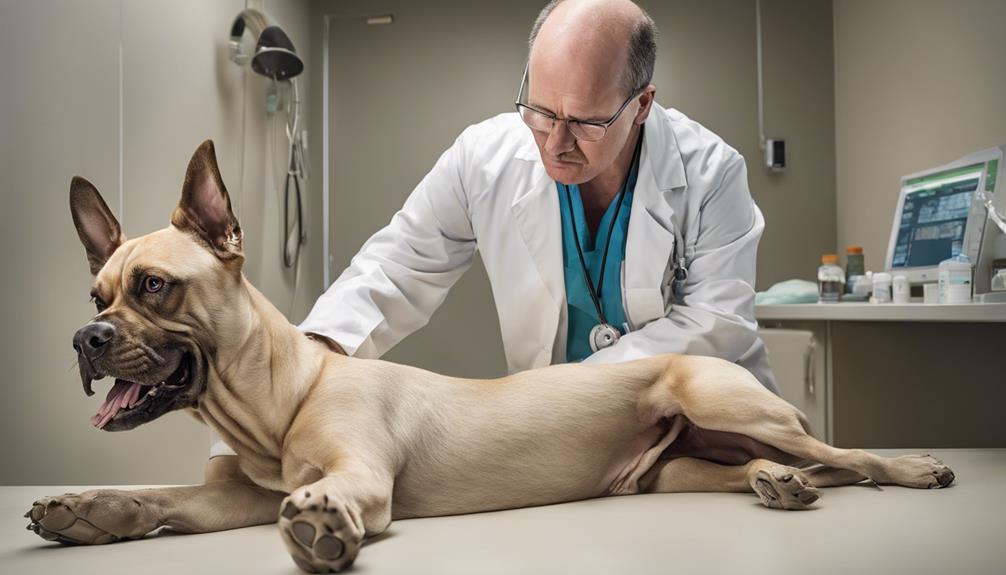
Upon suspecting yucca poisoning in dogs, prompt diagnosis and treatment are essential to ensure a favorable outcome for our furry companions. To effectively address this issue, here are key steps to take into account:
- Thorough Examination: A detailed physical assessment, along with a review of the incident history, is vital for accurate diagnosis.
- Laboratory Tests: Biochemical profiles and imaging techniques may be utilized to assess the extent of yucca toxicity in dogs.
- Symptom Management: Treatment involves addressing symptoms like vomiting and diarrhea promptly to alleviate discomfort.
- Fluid Therapy: Providing intravenous fluids can help maintain hydration and support overall recovery.
- Monitoring Prognosis: Timely intervention within 18 hours and careful monitoring for renal complications can greatly impact the prognosis of dogs affected by yucca poisoning.
Veterinary Care for Yucca Toxicity
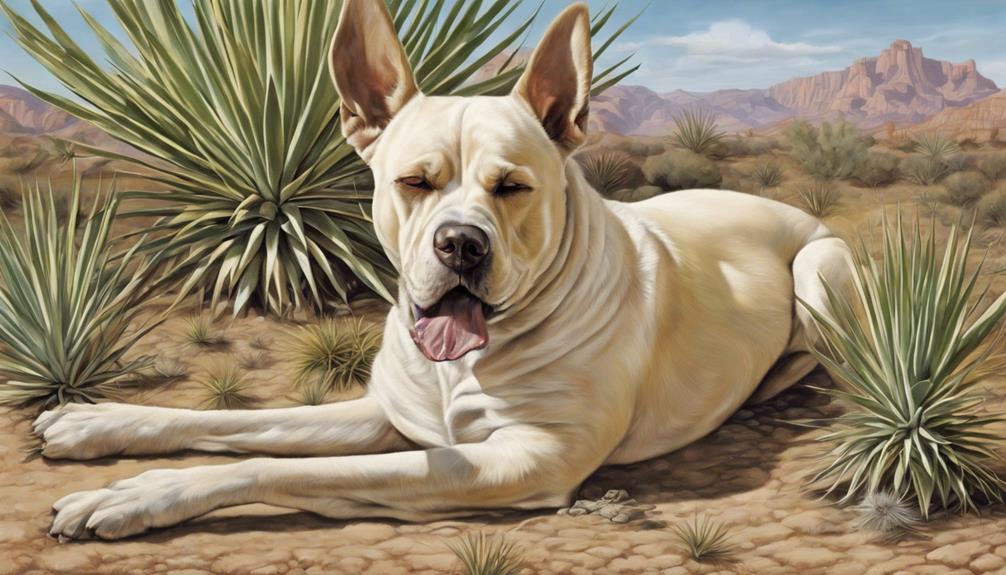
Veterinary professionals commonly administer activated charcoal to aid in the absorption of toxins from yucca plants in cases of pet poisoning. This helps prevent further harm by binding to the toxins and preventing their absorption in the digestive tract.
Inducing vomiting is another common practice to remove any remaining yucca plant material from the stomach. Intravenous fluids are vital for flushing out toxins and keeping the pet hydrated during treatment for yucca toxicity.
In severe cases, hospitalization may be necessary to provide intensive monitoring and supportive care. Regular monitoring and repeat blood tests are essential to track the pet's progress and adjust treatment as needed.
It's essential to follow the veterinarian's guidance closely to guarantee the best possible outcome for pets affected by yucca poisoning. Remember, swift and appropriate veterinary care is key to helping pets recover from yucca toxicity.
Preventing Yucca Ingestion in Dogs
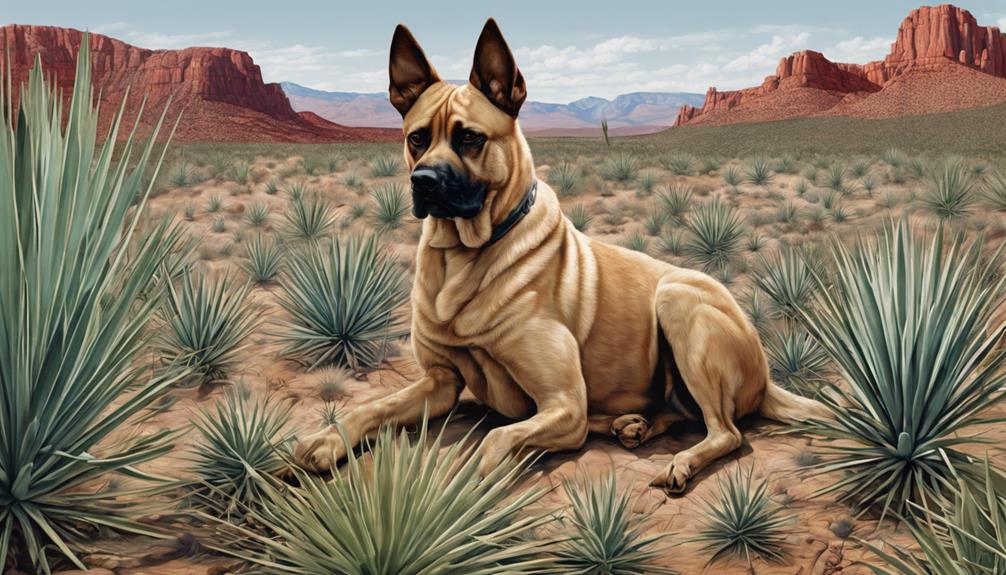
To prevent yucca ingestion in dogs, ensuring the plant is kept out of reach is essential for the safety of our canine companions. Here are some tips to help safeguard your furry friends:
- Educate Yourself: Learn to recognize the appearance of yucca plants so you can promptly remove them from areas accessible to your dogs.
- Secure Your Surroundings: Regularly inspect your surroundings and take measures to secure any yucca plants to prevent accidental ingestion by your pets.
- Consider Pet-Safe Alternatives: Planting pet-safe alternatives in your yard can help deter dogs from consuming toxic yucca plants.
- Height Matters: Place yucca plants in elevated areas or use barriers to keep them out of your dog's reach.
- Training is Key: Train your dogs to avoid yucca plants and reinforce this behavior with positive reinforcement.
Emergency Response for Yucca Poisoning
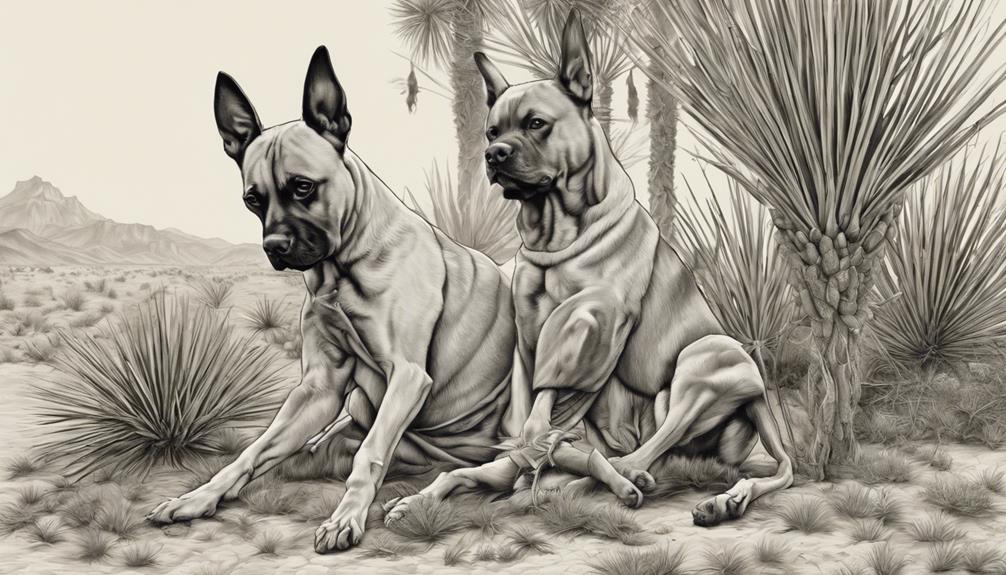
In case of Yucca poisoning in dogs, immediate veterinary intervention is essential for effective treatment and recovery. If your pet ingests Yucca plants containing toxic steroidal saponins, contact a vet promptly. Under veterinary guidance, inducing vomiting may be necessary for recent Yucca ingestion.
Treatment at a clinic may involve administering activated charcoal and intravenous fluids to help counteract the toxins. Monitoring for distress symptoms post-treatment is vital for your pet's well-being and swift recovery. Being mindful of the local flora and implementing pet-friendly landscaping to prevent Yucca poisoning incidents is important.
Pet-Friendly Landscaping Tips
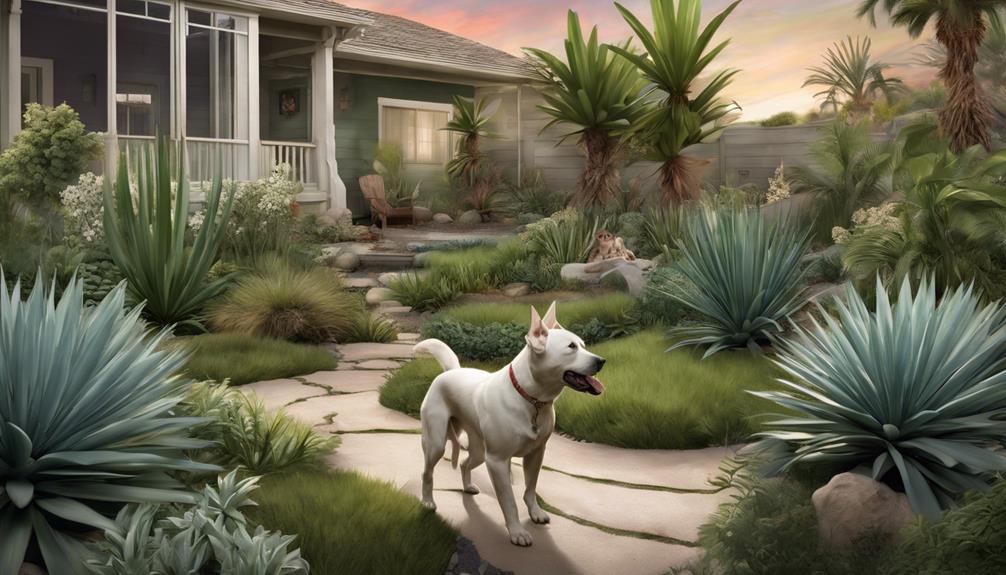
When creating a pet-friendly landscape, prioritize selecting non-toxic plants like spiderwort and sunflowers to safeguard your furry companions from potential harm.
Utilize natural deterrents like cayenne pepper or fencing to keep pets away from harmful plants.
Educate yourself on local flora to identify and avoid toxic plants like Yucca in your pet-friendly landscaping.
Train pets to stay away from potentially harmful vegetation by teaching them to avoid consuming unknown plants.
Keep toxic plants like Yucca out of reach to prevent poisoning incidents and guarantee the safety of your pets in the yard.
Frequently Asked Questions
What Are the Symptoms of Yucca Poisoning in Dogs?
Yucca poisoning in dogs can cause various symptoms. This may include drooling, vomiting, weakness, lack of coordination, bloating, and abdominal pain. Dogs can also experience foaming, nausea, and diarrhea from yucca plant ingestion.
Such poisoning can lead to serious gastrointestinal upset and adverse effects on a dog's health. It's important to recognize these signs promptly to guarantee your dog's well-being. If you suspect yucca poisoning, seek veterinary assistance immediately.
What Part of Yucca Is Toxic?
The essential part of yucca plants is the whole plant, including leaves, stems, and roots. All these components contain harmful steroidal saponins that can be harmful to dogs.
It's important to keep yucca plants away from our furry friends to prevent poisoning. Remember, even small amounts of any part can cause harm.
Always be vigilant and make sure your pets stay safe from these toxic plants.
What Happens When You Get Poked by a Yucca Plant?
When we get poked by a Yucca plant, the sharp, needle-like leaves can cause skin irritation and pain. The stiff leaves easily pierce the skin, leading to discomfort. Sometimes the sharp tips break off and stay in the skin, causing more irritation.
This contact can result in redness, swelling, and even infection. It's important to promptly clean and treat Yucca punctures to prevent complications and aid healing.
Is Color Guard Yucca Poisonous to Dogs?
Yes, Color Guard Yucca is poisonous to dogs. Ingesting this plant can cause gastrointestinal upset, weakness, confusion, and seizures in our furry friends. If your dog consumes Color Guard Yucca, seek immediate veterinary care.
As responsible pet owners, it's important to recognize the dangers of this toxic plant and take steps to prevent accidental ingestion. Keep these harmful plants out of reach to safeguard our beloved pets.
Are Yucca Plants and Chrysanthemums Equally Toxic to Dogs?
Yes, it is important to have a chrysanthemums and dog toxicity understanding as chrysanthemums can be toxic to dogs if ingested. Yucca plants are also mildly toxic to dogs. Both should be kept out of reach of pets to ensure their safety.
Conclusion
To sum up, it's vital to be aware of the dangers yucca plants pose to dogs. Recognizing the symptoms of yucca poisoning, seeking prompt veterinary care, and taking preventive measures are essential steps in keeping our furry friends safe.
By being proactive and educating ourselves on pet-friendly landscaping options, we can create a secure environment for our beloved companions. Remember, a little knowledge and caution go a long way in protecting our four-legged family members.
